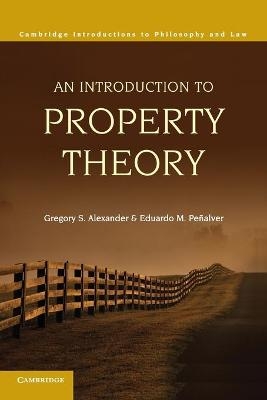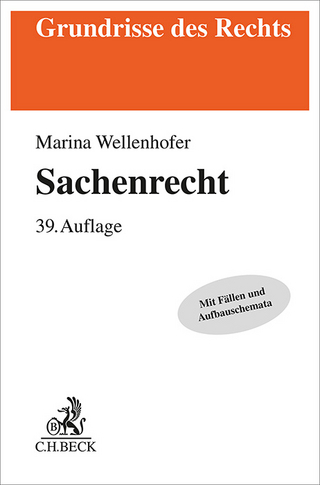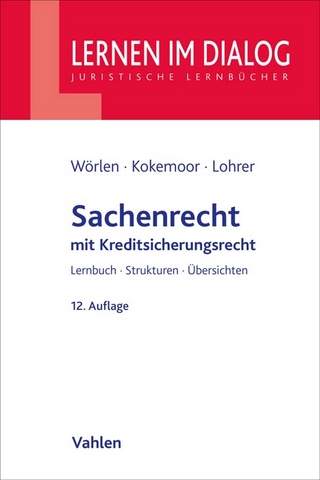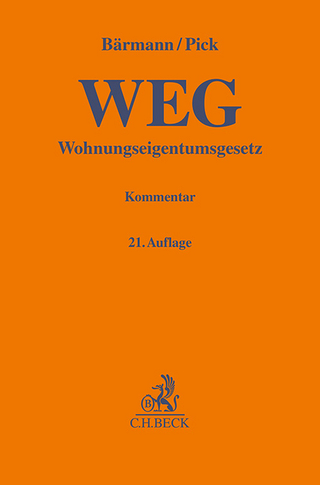
An Introduction to Property Theory
Cambridge University Press (Verlag)
978-0-521-13060-8 (ISBN)
This book surveys the leading modern theories of property - Lockean, libertarian, utilitarian/law-and-economics, personhood, Kantian and human flourishing - and then applies those theories to concrete contexts in which property issues have been especially controversial. These include redistribution, the right to exclude, regulatory takings, eminent domain and intellectual property. The book highlights the Aristotelian human flourishing theory of property, providing the most comprehensive and accessible introduction to that theory to date. The book's goal is neither to cover every conceivable theory nor to discuss every possible facet of the theories covered. Instead, it aims to make the major property theories comprehensible to beginners, without sacrificing accuracy or sophistication. The book will be of particular interest to students seeking an accessible introduction to contemporary theories of property, but even specialists will benefit from the book's lucid descriptions of contemporary debates.
Gregory S. Alexander is a nationally renowned expert in property and trusts and estates and the A. Robert Noll Professor of Law at Cornell University, New York. Following his graduation from Northwestern University School of Law, he clerked for the Honorable George Edwards of the US Court of Appeals for the Sixth Circuit. Alexander is the winner of the American Publishers Association's 1997 Best Book of the Year in Law award for his work, Commodity and Propriety. More recent books include The Global Debate over Constitutional Property: Lessons for American Takings Jurisprudence and Property and Community (with Eduardo M. Peñalver). He is co-author of the most widely used property casebook in the United States (with James Krier and Michael Schill). His articles have appeared in such journals as the Columbia Law Review, the Stanford Law Review, the Michigan Law Review and the Cornell Law Review. Eduardo M. Peñalver is a Professor of Law at Cornell University, New York. Upon graduating from Yale Law School, he clerked for the Honorable Guido Calabresi of the US Court of Appeals for the Second Circuit and for Justice John Paul Stevens of the US Supreme Court. His research interests focus on property and land use, as well as law and religion. He is particularly interested in the ways that property both fosters and reflects social bonds. He is the author of numerous books and articles on property and land use law and his work has appeared in several leading law journals. His book, Property Outlaws (co-authored with Sonia Katyal), explores the role of disobedience in the evolution of property law.
1. Utilitarian property theories; 2. Locke and libertarian theories of property; 3. Hegelian property theory; 4. Kantian property theory; 5. Aristotelian property theory; 6. Government redistribution of resources; 7. The right to exclude and its limits; 8. Eminent domain and regulatory takings; 9. Intellectual property.
| Reihe/Serie | Cambridge Introductions to Philosophy and Law |
|---|---|
| Zusatzinfo | Worked examples or Exercises |
| Verlagsort | Cambridge |
| Sprache | englisch |
| Maße | 152 x 226 mm |
| Gewicht | 340 g |
| Themenwelt | Geisteswissenschaften ► Philosophie |
| Recht / Steuern ► EU / Internationales Recht | |
| Recht / Steuern ► Privatrecht / Bürgerliches Recht ► Sachenrecht | |
| ISBN-10 | 0-521-13060-3 / 0521130603 |
| ISBN-13 | 978-0-521-13060-8 / 9780521130608 |
| Zustand | Neuware |
| Haben Sie eine Frage zum Produkt? |
aus dem Bereich


